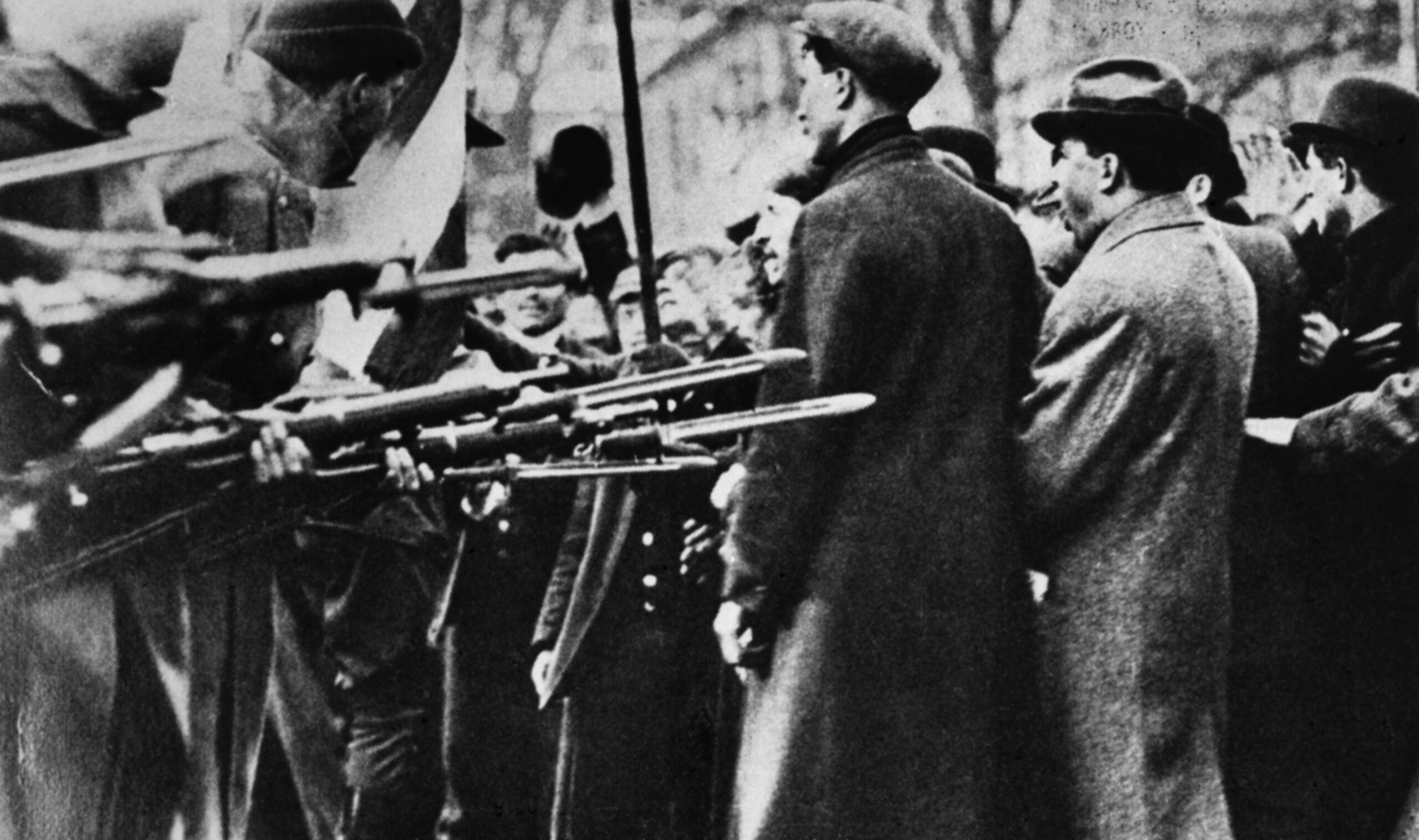Film Review: The Wobblies (1979)

All I ask, if I should live to an old age, is that I have as much piss and vinegar as the eighty- and ninety-year-old subjects of Stewart Bird and Deborah Shaffer’s documentary The Wobblies. It’s sometimes hard to fathom that our parents and grandparents had lives of their own before we came along, but they did, and there’s a good chance those lives were pretty damn exciting.
In the case of the men and women of The Wobblies, those lives may have included any combination of armed confrontations with police, property damage, sabotage, red agitation, and jail time. Yes, in their day, these old-timers were labor activists under the umbrella of the International Workers of the World (the I.W.W., or Wobblies as they came to be known), and we owe them more than we could ever pay back in half-a-dozen lifetimes.
The Wobblies is told almost entirely from the perspective of those on the front lines in the glory days of the movement, and what a collection of stories they are. Much like the down-and-dirty nature of labor organizing in the 1910s, ‘20s, and ‘30s, those reminiscing about their lives do so completely free of pomp and circumstance, instead using plain, unadulterated language that confirms their continued commitment to human rights.
Rather than resorting to cinematic trickery or false glorification, Bird and Shaffer’s production mirrors their subjects’ to-the-point manner of speaking by keeping things as simple as possible. Cut throughout the film are an assortment of amazing archival photos, artwork, and period-specific protest songs, but it’s the people telling the stories who are the real treasure. Their nonchalance about the violence they faced at the hands of hired government thugs, private armies, and even local police and military outfits is simply staggering. And that they fought and, in most cases, won their bloody conflicts and political battles against these money-backed institutions is the stuff that dreams are made of.
Quite literally, we owe these brave men and women our lives. Without them, there would be no eight-hour day, weekends, overtime, sick days, workplace safety, vacation time, injury compensation, or any labor-related regulation at all. Participants faced harassment, blacklisting, beatings, and the threat of death, but they fought and died anyway so that their children and grandchildren could have better lives.
And while it can be very easy to minimize historical events to half-understood holidays (for example, U.S. capitalists replacing May Day—the real International Workers’ Day, which commemorates the 1886 Haymarket riots, among other things—with the intentionally benign Labor Day in an effort to stop the momentum gained by labor unions, specifically socialist labor unions) or reduce them to conveniently empty political sloganeering, remember that the events described in The Wobblies are not some far-off occurances that took place in the distant past. It’s likely your grandparents took part, and they did so right in your own backyard and with you on their minds.

